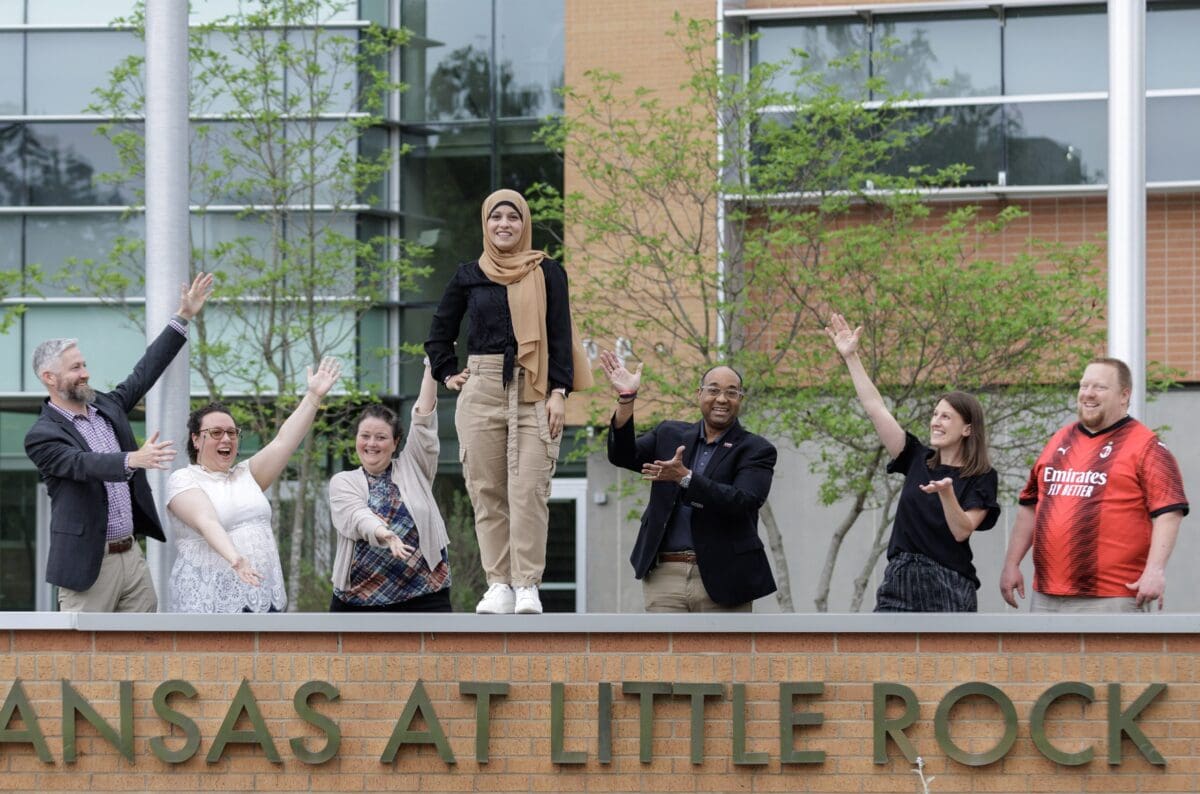Chemistry Educator Completes Doctorate, Secures Professorship in Chemical Education Research

Driven by a lifelong passion for both teaching and scientific inquiry, Dr. Ronia Kattoum has reached a significant milestone in her academic journey. After years of dedication and hard work, the long-time chemistry instructor and single mother of four has successfully earned her doctoral degree in applied sciences-chemistry and accepted a full-time assistant professorship in chemical education research.
After growing up in Palestine, Kattoum moved with her family to Chicago at age 9. She found a love of STEM (Science, Technology, Engineering, and Math) education early in life and earned her bachelor’s degree in chemistry from Loyola University. She then moved to Arkansas, earning two master’s degrees in chemistry and higher education from UA Little Rock.
In 2014, Kattoum became a valued instructor in the Department of Chemistry, becoming the 2021 recipient of the Faculty Excellence Award in Teaching for the Donaghey College of STEM. Over the years, she served as the freshman programs coordinator and teacher licensure program coordinator, a facilitator for the Mobile Institute on Scientific Teaching (MoSI), as well as helped start the Learning Assistants program with Dr. Mark Baillie, assistant professor of chemistry. It was the introduction of the MoSI workshop that became a game changer for Kattoum.
“I had already been an instructor for several years when Mark Baillie joined the faculty in 2019 and brought with him the MOSI workshop,” Kattoum said. “I’ve always experimented with different methodologies to engage my students, but I didn’t realize there was a science to teaching science. It was really a career changer for me that sparked my interest in working on my Ph.D.”
Baillie, her longtime colleague, described Kattoum as a “tour de force,” who secured more than $40,000 in external funding to support her research, invite speakers to campus, and fund undergraduate researchers. Since she started her doctoral program, she has presented during two international conferences each year and is on track to submit four peer-reviewed publications resulting from her dissertation.
“The impact of her research has the possibility to broaden the participation of students from historically marginalized groups in STEM, both at UA Little Rock and in the entire higher education system in the U.S.,” Baillie said. “We at UA Little Rock are incredibly proud to have been part of Ronia’s career journey.”
Kattoum began researching discipline-based education research focusing on chemistry education. She completed her dissertation, “An Investigation of the Mindset Context and its Downstream Effects on Marginalized Student Outcomes in College STEM Courses” this semester. She completed her doctoral degree while being a single mother of four kids, now ages 9, 14, 16, and 19, who were all excited to see their mom graduate.
“I was so excited to see my oldest son when he came to my defense,” Kattoum said. “He talked about how different it was to see me in action and how well I connected with people. My colleagues told me they saw the pride in his eyes. My parents and other kids watched me on Zoom. It was wonderful to have my kids experience my achievement with me.”
This summer Kattoum will be conducting post-doctoral research with her UA Little Rock colleagues as well as moving into a new home before starting her new position as an assistant professor and chemistry education researcher at Roosevelt University in Chicago.
“This is a milestone I’ve been looking forward to for a long time, and it’s the result of many sacrifices,” Kattoum said. “I couldn’t start the Ph.D. program right away because of familial responsibilities. I always felt it was inevitable that I would come back and get this Ph.D. It’s a lifelong dream for me. It’s all about having a license to do what you love. I wanted to do research to help further student success in STEM disciplines, and now I have a platform to do that at Roosevelt University. I’m looking forward to how I can change the world, one institution and one student at a time.”
